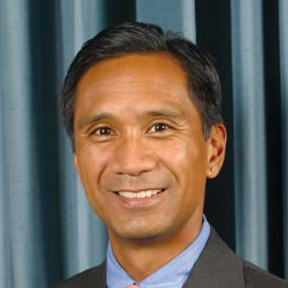The Department of Homeland Security, which turned 5 years old the first of this month, has requested another $50 billion for the coming budget year, but it’s not clear the money will be well-spent or make us more secure.
The first National Strategy for Homeland Security—issued by the White House in July 2002 before the department was created—proclaimed it was “important to reprioritize spending to meet our homeland security needs, and not simply to permit unchecked overall growth in federal outlays.” The most recent National Strategy for Homeland Security, issued last October, calls for “a risk-based framework across all homeland security efforts in order to ... prioritize and allocate resources” Yet, a review of the proposed fiscal 2009 DHS budget reveals far more status quo spending than prioritizing.
The proposed $50.5 billion budget is a nearly 9 percent increase over the $46.4 billion fiscal 2008 budget, which had been about 9 percent higher than the $42.7 billion fiscal ’07 budget. The department’s first budget, in 2003, was $33.7 billion.
While homeland security spending has increased almost 40 percent in five years, the way the money is spent has remained much the same. DHS’ main operating components—Citizenship and Immigration Services (CIS), Customs and Border Protection (CBP), Federal Emergency Management Agency (FEMA), Immigration and Customs Enforcement (ICE), Secret Service, Transportation Security Administration (TSA), and U.S. Coast Guard (USCG)—command roughly three-quarters of the budget. Roughly the same percentage of the budget has been allocated to each operating component every year. In both fiscal 2008 and 2009 the allocations are identical: 6 percent for CIS, 22 percent for CBP, 13 percent for FEMA, 11 percent for ICE, 3 percent for the Secret Service, 14 percent for TSA, and 19 percent for the Coast Guard.
This hardly reflects the setting of priorities. Instead, it is indicative of what many analysts feared when DHS was created: government bureaucracy.
The fact that CIS, CBP and ICE have the terms customs and immigration in common begs the question of whether three separate agencies, which together account for nearly 40 percent of DHS’ budget, are necessary to accomplish what amounts to the same mission—especially when one of the arguments made by the administration to create DHS was that it would eliminate redundancies.
Of course, one could argue that the relatively constant budget allocations means simply that DHS has the formula correct. Given that the department was created hastily by cobbling together 22 federal agencies, it seems unlikely that five years of “more of the same” is the right formula. More likely, it reflects bureaucratic infighting, with each component trying to keep its respective budget share—much the same as the military services do with the Defense Department budget.
Putting aside whether $50 billion is too much or too little for DHS, whatever is spent should be spent rationally and effectively. Homeland security programs and program budgets should be fulfilling requirements linked to capabilities to conduct missions that enable the department to achieve its strategic goals and objectives.
Moreover, program choices and budget decisions need to be made with cost-effectiveness, risk and various tradeoffs in mind. This is the essence of the Planning, Programming and Budgeting System (now Planning, Programming, Budgeting, and Execution System) put in place at the Defense Department in the early 1960s by Secretary Robert McNamara and his so-called whiz kids. DHS has such a system, but it doesn’t seem to have much impact on the budget.
After five years, DHS still appears to be throwing lots of money at everything (in part so the department can’t be accused of inaction) without really understanding which problems are most important and how best to allocate resources among the different possible solutions to those problems.
Though DHS is trying to align its planning, programming and budgeting, it may be too late to make any real difference in fiscal 2009. So, for at least the next two years, DHS will continue to spend billions of dollars for more security at airports and at our borders, without knowing whether it will make us more secure or money being spent on one program might be better spent on another.
If we’re going to have a Homeland Security Department, we can—and must—do better than that.







